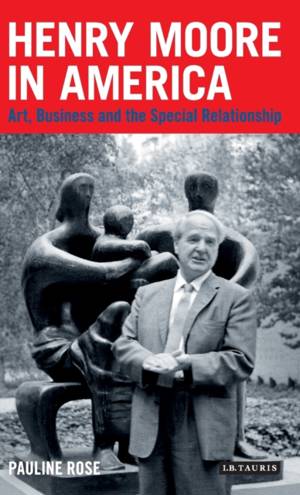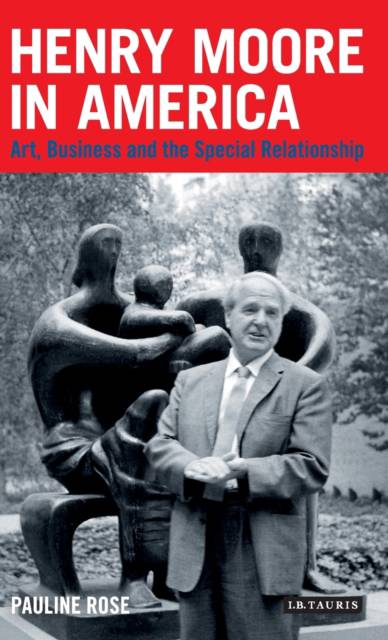
- Retrait gratuit dans votre magasin Club
- 7.000.000 titres dans notre catalogue
- Payer en toute sécurité
- Toujours un magasin près de chez vous
- Retrait gratuit dans votre magasin Club
- 7.000.0000 titres dans notre catalogue
- Payer en toute sécurité
- Toujours un magasin près de chez vous
271,45 €
+ 542 points
Description
Although a quintessentially English sculptor, Henry Moore experienced outstanding success in the United States. A man much admired and revered, he was the natural choice for corporate and civil commissions, with many seeing ownership of his work as an expression of rank and aspiring wealth. The fact that the United States contains the greatest number of his sculptures, as opposed to his home country, cannot simply be attributed to superior spending power. Based on original sources, and containing many previously unpublished images, Pauline Rose's book explores the reasons for Moore's fame in America, and the construction of his American persona. An autonomous, creative genius was a seductive and popular idea for the Americans, a perception encouraged by the photographs, films and writings of him in the press. The impact of Moore's presence was likely even stronger precisely because he did not fulfil the expected traits of either the modern artist or the modern celebrity.
Rose's work focuses on contextual factors surrounding Moore's reception: political and economic imperatives within the United Kingdom and the transatlantic Special Relationship between the United Kingdom and America. Exploring the ways in which Moore was presented to an American audience via text and imagery and the influential network of his supporters which spanned the two countries, this insightful book examines a range of sculptural commissions in key American cities. His popularity is likely to be related to the ambitions of politicians and businessmen alike who perceived Moore's monumental sculptures as expressions of citizenship and humanity, particularly against the backdrop of the Cold War. This text is a valuable and innovative addition to studies on Moore. It will be indispensable to all those interested in twentieth century art history and cultural studies, Anglo-American relations, and the vibrant relationship between text and image.
Rose's work focuses on contextual factors surrounding Moore's reception: political and economic imperatives within the United Kingdom and the transatlantic Special Relationship between the United Kingdom and America. Exploring the ways in which Moore was presented to an American audience via text and imagery and the influential network of his supporters which spanned the two countries, this insightful book examines a range of sculptural commissions in key American cities. His popularity is likely to be related to the ambitions of politicians and businessmen alike who perceived Moore's monumental sculptures as expressions of citizenship and humanity, particularly against the backdrop of the Cold War. This text is a valuable and innovative addition to studies on Moore. It will be indispensable to all those interested in twentieth century art history and cultural studies, Anglo-American relations, and the vibrant relationship between text and image.
Spécifications
Parties prenantes
- Auteur(s) :
- Editeur:
Contenu
- Nombre de pages :
- 272
- Langue:
- Anglais
- Collection :
Caractéristiques
- EAN:
- 9781848858213
- Date de parution :
- 19-12-13
- Format:
- Livre relié
- Format numérique:
- Genaaid
- Dimensions :
- 145 mm x 216 mm
- Poids :
- 453 g

Les avis
Nous publions uniquement les avis qui respectent les conditions requises. Consultez nos conditions pour les avis.






